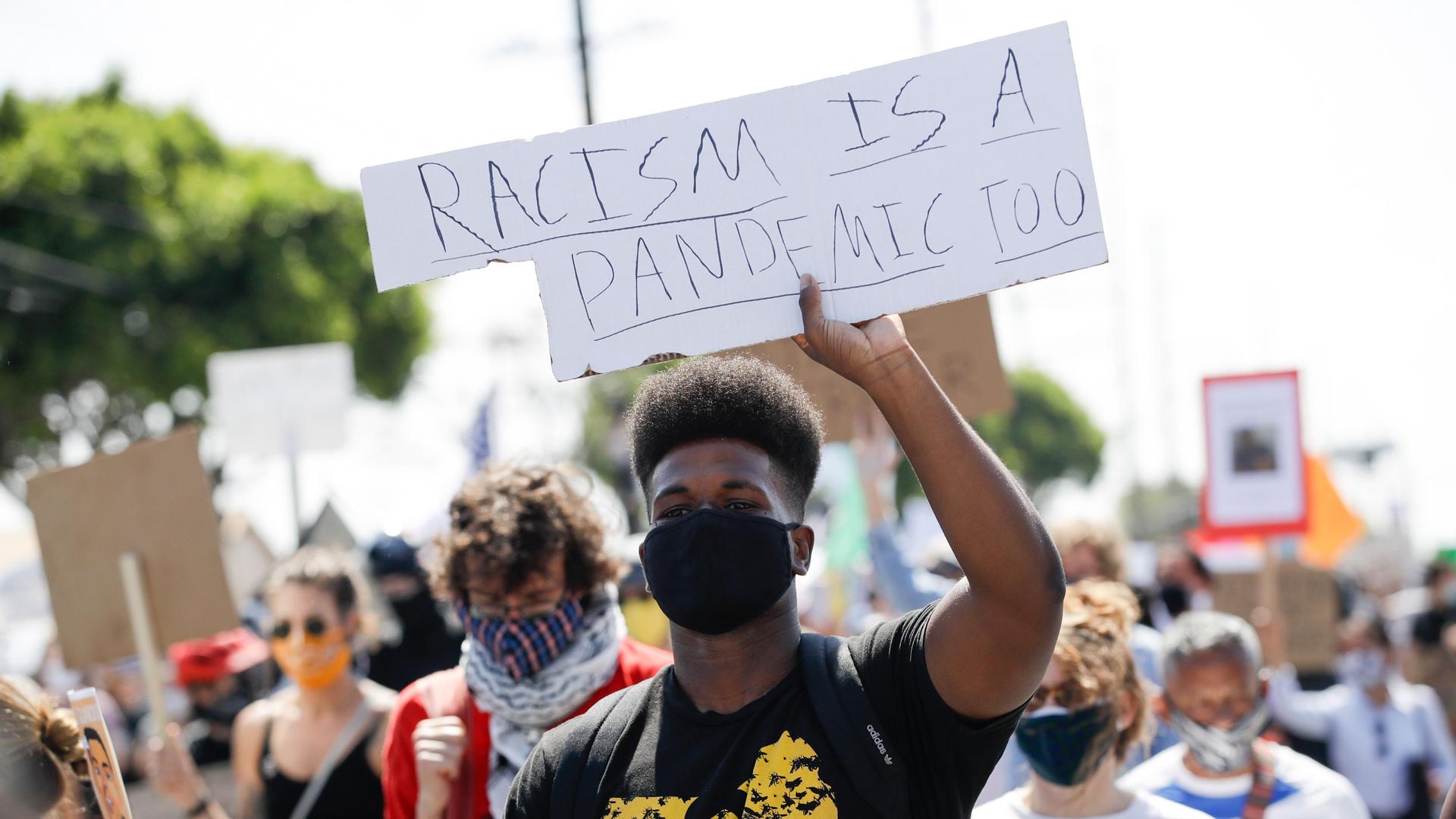Discussion: Mental health concerns for young people of color during COVID-19
A protester carries a sign during a march with a coalition of labor unions, along with racial and social justice organizations who staged a mass walkout from work as part of an ongoing reckoning on systemic racism, June 2020.
The coronavirus outbreak has hit Black and other communities of color disproportionately in hospitalizations and deaths in the United States and around the world.
Reasons are complex, but the disparities are thought to stem from minorities working in jobs on the front lines, having medical conditions associated with severe disease, higher rates of poverty and poor access to health care.
A US advisory panel recently made recommendations for who should be first in line to get the COVID-19 vaccine. As expected, the panel recommended health care workers and first responders get first priority when vaccine supplies are limited. But throughout the vaccine campaign, efforts also should focus on disadvantaged areas to remedy racial health disparities, according to a report from the National Academies of Sciences, Engineering and Medicine.
“Everybody knows from the news how deadly this has been for minorities,” panel co-chair William Foege of Emory Rollins School of Public Health said Friday. “We said it’s racism that is the root cause of this problem.”
“This virus has no concept of color but it has a very good concept of vulnerabilities,” he added.
Related discussion: How the coronavirus crisis has exposed entrenched health inequities
Even prior to the coronavirus pandemic, young people of color faced daunting challenges, which are highlighted when navigating the workplace.
At alarming rates, jobs and internships are disappearing and unemployment rates among people of color are increasing. Combined with the impacts of systemic racism there are higher rates of depression, anxiety, and trauma-related symptoms in people of color that can undermine mental health.
This panel discussion, moderated by GBH News’ Phillip Martin, explored the mental health factors employers should consider in helping to establish a more supportive workplace.
This conversation was presented jointly with The Forum at Harvard’s Chan School of Public Health and The Steve Fund.
Moderator:
Phillip Martin
Senior investigative reporter, GBH Center for Investigative Reporting
Participants
Linda Akutagawa
President & CEO, Leadership Education for Asian Pacifics (LEAP)
Damien Hooper-Campbell
Chief Diversity Officer, Zoom
Joan Steinberg
Managing Director, Global Head of Philanthropy, Morgan Stanley; President, Morgan Stanley Foundation
Sarah Vinson
Harvard-trained psychiatrist; Founder, Lorio Psych Group; Child and Adolescent, Adult and Forensic Psychiatrist; and Associate Professor, Psychiatry and Behavioral Sciences and Pediatrics, Morehouse School of Medicine
The Associated Press contributed to this post.
Our coverage reaches millions each week, but only a small fraction of listeners contribute to sustain our program. We still need 224 more people to donate $100 or $10/monthly to unlock our $67,000 match. Will you help us get there today?
